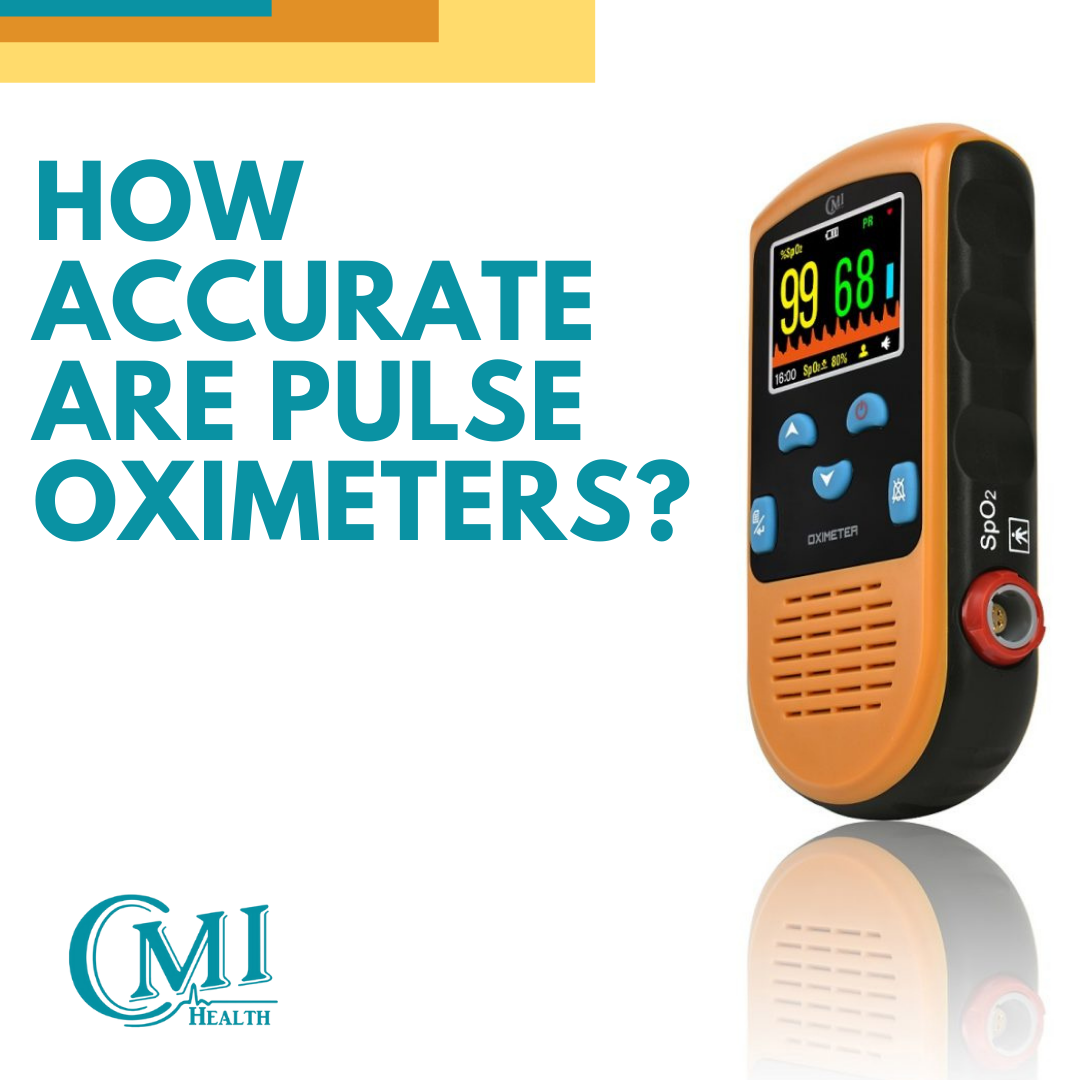Your cart is empty now.

How Accurate Are Pulse Oximeters? | CMI Health
How Accurate are Pulse Oximeters?
When it comes to medical grade devices, there are standards that must be met in order to maintain consistency and accuracy. Any device that is not considered medical grade or “FDA-Cleared” should be avoided as these devices are not required to meet the same standards set by the Food and Drug Administration (FDA).
Pulse oximeters that are registered as FDA-Cleared are required to meet a minimum average accuracy that is determined through desaturation studies on healthy individuals (FDA, 2021). In order for a pulse oximeter to be considered reliable, it must be able to consistently reproduce SpO2 readings within 2-3% of arterial blood gas values.
Even with these parameters set, it is necessary to recognize such standards allow for slight variation in readings between medical grade devices. According to the FDA (2021), all readings given by a cleared pulse oximeter should be considered an estimate of true blood oxygen saturation.
“…if an FDA-cleared pulse oximeter reads 90%, then the true oxygen saturation in the blood is generally between 86-94%. Pulse oximeter accuracy is highest at saturations of 90-100%, intermediate at 80-90%, and lowest below 80%” (FDA, 2021).
Another variable to be considered when addressing the accuracy of pulse oximetry is the user variation. To be more concise, no two people are exactly the same. Though this does not generally change the accuracy of the pulse oximeter, there are certain factors that may lead to differences. Recently, the scientific community has recognized that differences in skin pigmentation may result in accuracy variation between individuals (Sjoding et al. 2020). Though the difference is usually small at saturation levels above 80%, it should still be acknowledged and further evaluated in future scientific experiments.
Even the most accurate pieces of equipment can be influenced by certain environmental and physiological conditions, and the pulse oximeter is no exception. Conditions that may affect the accuracy of your pulse oximeter include:
- Probe Placement
- Outside Lighting
- Pressure on the Wrist
- Nerve-Blocking Medications
- Increased Movement
- Artificial Nails
- Underlying Health Conditions
Check out our Factors that Affect Pulse Oximetry Blog for more information! You can also view our Normal Readings on a Pulse Oximeter blog for more information on what to expect when taking SpO2 measurements with a pulse oximeter.
All CMI Health devices are Medical Grade and FDA Cleared. If you have any questions or concerns pertaining to these standards, please feel free to contact us at info@cmihealth.com.



